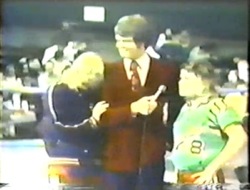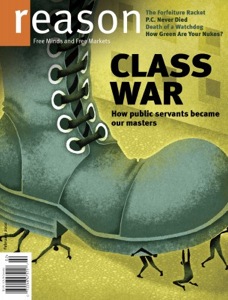Berlin

Photos by Valbona Shujaku

Drawing by James Fotopoulos
From the desk of Joe Carducci...
No, don’t “Pay Attention to the Man Behind the Camera.” This is most interesting for author Michael Sragow’s description of trying to convince Terry Gross’s air-head producer, who may well be an intern, that Victor Fleming could be important to learn about precisely because she’d never heard of him. Ignorance can demand a very high bar I’ve found myself.
***
Jason Epstein in the New York Review of Books on the end of books:
Gutenberg's technology was the sine qua non for the rebirth of the West, as if literacy, scientific method, and constitutional government had been implicit all along, awaiting only Gutenberg to throw the switch. Within fifty years presses were operating from one end of Europe to the other, halting only at the borders of Islam, which shunned the press. Perhaps from the same fear of disruptive literacy that alarmed Islam, China ignored a phonetic transcription of its ideographs, attributed to a Korean emperor, that might have permitted the use of movable type.
***
David Carr in his NYT column on Sally Quinn losing one of her columns in her husband’s newspaper:
But the leadership of The Washington Post, perhaps sensing that having a column about social graces written by someone who had committed the kind of faux pas that your average trailer park resident could have avoided, decided it was best to uninvite the column from the paper.
Well put, but elsewhere in the piece Carr recycles the conventional wisdom of alleged fallen Washington comity, of which only the transportation element is correct -- it being easier now to jet home to your district every weekend and never hang with colleagues. As for the rest of it with its Whose-Ox-Is-Gored myopia, implying the Republicans post-Bob Michel are to blame, or post-Reagan, or post-Goldwater… First let’s remember that we live in a framework set up over four terms by FDR after certain limited structural let’s-call-them-innovations by Woodrow Wilson, Teddy Roosevelt, and Abe Lincoln which were strictly-speaking unconstitutional. Only Ron Paul and a Supreme Court Justice or two is speaking strictly anymore, but after FDR the federal government became a full-time proposition and everything thereafter was, as the colloquial expression “Don’t make a federal case out of it” suggests, was going to be federalized. The Republicans were a minority party that might occasionally manage to elect a president but was not capable of competing nationwide in the legislature. They could only win the House if the Democrats lost it. Feeding this default Democratic legislature are the big city Democratic machines, most famously in Chicago, New York, and Boston, but in most cities. There too Republicans occasionally elect a mayor when the Democrats lose the seat. It’s more accurate to say that occasionally Democrats elect a Republican President, Mayor or Legislature. Only the Senate with its faint smell of the House of Lords is a naturally Republican organ. I read the postwar political evolution in Washington as a Democratic Party that cannot abide the rise of Republican competition for the Presidency and even in the House as it is a measure of their own failure on this unwise FDR scale. But Kate Graham’s and Ben Bradlee’s The Washington Post, which made its bones with the supreme violation of comity, the taking down of Richard Nixon, has no standing to be embarrassed by anything Sally Quinn might say, no matter what accent she’s dishing it out in. They printed the legend; be nice if other papers checked that out, just as they do when their mother tells them she loves ’em. Or is that legend too?
***

David Denby on Clint Eastwood in this week’s NYer, where he semi-generously writes, “Those who were skeptical of Eastwood forty years ago (I’m one of them) have long since capitulated, retired, or died. He has outlasted them all,” yet still clings to past judgments of past films, and even refers to the “limitations” of the western -- the genre long preeminent because it allows for nothing less than the recapitulation of the history of western civilization within a couple decades’ history of several western states. Still, worth reading. As I have it in my forthcoming film book, the filmcrit miss on early Eastwood and others was akin to the rockcrit miss on hard rock and punk and surely today makes for the puzzlement of any young kid reading the old crit cannons for comprehension of their film/music inheritances.
***
Sasha Frere-Jones’ piece on Bill Withers in the NYer is pretty good and timely, although actually early seventies R&B is going to stay timely forever now, as it's basically the end of the line for an American musical train of played folk forms, if not completely, then at least as popular music. Most of my record buying these years is picking through the six and seven dollar oldies comps at Wal-Mart in Laramie. I’d been hoping for a Withers comp for a few years when one showed up last fall. It’s a good one to have.
***
This non-review of John Mayer by Jon Caramanica, seemingly personally edited by Frank Rich, defender of homosexuals, is the kind of uplift probity-demonstration that the first time around by pretend movement critics all but invited the heretofore then-as-was never-been-kissed word Nigger and signage Swastika to rebound onto the seventies landscape beginning well before now neo-hippie uplifter Patti Smith’s useage, and everyone’s fave neo-Nazi martyr-to-the-cause Sid Vicious. I shudder to think where all those young girls at John Mayer’s blues concerts might end up (backstage?) were it not for the New York Times policing everything coming out his mouth.
***
John Prine tells Greg Kot in the Trib why he didn’t sign with Delmark Records.
***
Bruce Wolf, unemployed? That’s a shame. Are there ten better sportscasters in town? I wasn’t aware of that. Here’s Bruce calling in a Tribune chit and well he might. Here’s his blog.

Speaking of postwar Chicago sports journalism royalty, here’s Chet Coppock covering the roller-derby for way up the UHF dial and then stopping by fellow Field Television employee Svengoolie’s.
***

Radio drama on the internet from So. Portland, Me., in the WSJ. And for the classics of the form try Radio Spirits. They do a good job as you might guess they would.
***

The Economist review of Nicholas Wade’s book, The Faith Instinct: How Religion Evolved and Why It Endures. This book would appear to get at what religions do for peoples. I think of religions as philosophies of survival over the longest term conceivable for early man, which I take it was significantly longer than present man can conceive of between phone calls. These philosophies of survival are not all equal at this task which accounts for some thriving, others fading, and still another convulsing in violence. From the review: “Charles Darwin, whose idea of the sacred also came from an English private school, witnessed religion at its most primordial when he went to Australia in 1836. He found it horrifying: ‘nearly naked figures, viewed by the light of blazing fires, all moving in hideous harmony…’”
***
Arthur Goldwag’s “Heresy Is a Cradle” in the Killing The Buddha blog:
Consider Anne Hutchinson (1591-1643), whose arguments with mainstream Puritanism made her, at one time, the most hated woman in America. “Your opinions fret like a gangrene and spread like a leprosy, and infect far and near, and will eat out the very bowels of religion,” her erstwhile teacher Minister John Cotton admonished her, as she was excommunicated from the Church of Boston and consigned to the mercies of the wilderness. The Puritans celebrated when they received word of her death seven years later; its grisly circumstances—she and more than a dozen members of her household, including six of her fifteen children, were scalped by an Indian war party—were regarded as wondrous evidence of divine providence.
***
In the hierarchy of egalitarianisms, race beats gender, probably because biologically race has no meaning. Witness Michael Weiss’s “Amnesty International and the Taliban”, in the WSJ.
***
“Why Psychiatry Needs Therapy”, by Edward Shorter in the WSJ:
To flip through the latest draft of the American Psychiatric Association's Diagnostic and Statistical Manual… is to see the discipline's floundering writ large…. Patients who seek psychiatric help today for mood disorders stand a good chance of being diagnosed with a disease that doesn't exist and treated with a medication little more effective than a placebo…. The latest draft of the DSM fixes none of the problems with the previous DSM series, and even creates some new ones…. DSM-V accelerates the trend of making variants on the spectrum of everyday behavior into diseases: turning grief into depression, apprehension into anxiety, and boyishness into hyperactivity…. Where is psychiatry headed?… With DSM-V, American psychiatry is… defining ever-widening circles of the population as mentally ill with vague and undifferentiated diagnoses and treating them with powerful drugs.
***
André Glucksmann in the City Journal does the requisite literalist clucking about Fukuyama’s “End of History” essay regarding 1989 before getting down to his point: “During four decades of ideological confrontation, theoreticians and journalists had argued about how a society should move from capitalism to socialism. There was no research on the opposite question—that is, on the transition from socialism to capitalism…”
***
 Steven Greenhut in Reason is good on “how public servants became our masters,” beginning with an interesting case of the ID screening of license plates in Orange County, California. This bears on the extra-large SUVs various servants of ours (Albert Gore, Jonathan Corzine…) feel they must be driven around in at top speed. No doubt it pains them that they cannot be so efficient as the members of the Soviet Politburo who once were able to speed through the streets of Moscow, empty of all other cars as no citizen possessed one, and certain that their masters the People knew enough to dive out of their way on hearing them approach on their business…
Steven Greenhut in Reason is good on “how public servants became our masters,” beginning with an interesting case of the ID screening of license plates in Orange County, California. This bears on the extra-large SUVs various servants of ours (Albert Gore, Jonathan Corzine…) feel they must be driven around in at top speed. No doubt it pains them that they cannot be so efficient as the members of the Soviet Politburo who once were able to speed through the streets of Moscow, empty of all other cars as no citizen possessed one, and certain that their masters the People knew enough to dive out of their way on hearing them approach on their business…
So police and their families were granted confidentiality. Then the program expanded from one set of government workers to another. Eventually parole officers, retired parking enforcers, DMV desk clerks, county supervisors, social workers, and other categories of employees from 1,800 state agencies were given the special protections too. Meanwhile, the original intent of the shield had become obsolete: The DMV long ago abandoned the practice of giving out personal information about any driver. What was left was not a protection but a perk… Yes, rank has its privileges, and it’s clear that government workers have a rank above the rest of us. Ordinarily, if one out of every 22 California drivers had a license to drive any way he chose, there would be demands for more police power to protect Californians from the potential carnage. But until the newspaper series, law enforcement officials and legislators had remained mum. The reason, of course, is that the scofflaws are law enforcement officials and legislators.
***
IBD editorial on a Washington Times report:
A Washington Times report underscores this shift. Last year, ‘for the first time since the Great Depression, Americans took more aid from the government than they paid in taxes,’ it has determined. Transfer payments — unemployment, Social Security, food stamps, Medicaid, Medicare and other forms of government welfare — grew $231 billion last year to just over $2.1 trillion. Meanwhile, individual taxes shrank $325 billion to $2.1 trillion, slightly less (before rounding) than transfer payments.
***
The NYT's Chicago edition report on the Service Employees International Union on a roll with clout enough to commit suicide:
The union’s 170,000 members in Illinois include about 7,500 state workers and tens of thousands of home health care and child care workers who are paid with state money. An early supporter of Barack Obama’s White House aspirations, the service employees union also backed the winners in the three highest-profile state primary races this year… “It was a good day for us,” Tom Balanoff, president of the union’s state council, said in an interview last week. The union’s successes culminated a long push for prominence that has seen it become the biggest financial contributor to Illinois political campaigns… Critics in the business community, including the Chicagoland Chamber of Commerce, say the service employees union contributed heavily to the governor’s campaign in an obvious effort to spare its members from layoffs related to budget cuts. Mr. Quinn has called for an increase in the state income tax to close the state’s deficit. Through a spokeswoman, he declined to be interviewed for this article. The leaders of the S.E.I.U. also support an income tax increase rather than further cuts in the state payroll. “This situation has not been created by overspending,” Mr. Balanoff said. “This has been created by a lack of revenue.”
***
Dave Bing, point guard-Mayor of Detroit, decides there’s not enough people to game the census as per usual ever since Mayor Coleman Young began that gambit thirty years ago. But there’s apparently enough empty space in Detroit to commence farming.
***
Obituary of the week.
Robert J. Myers, Actuary Who Shaped Social Security Program, Dies at 97.
Mr. Myers served as Social Security’s chief actuary from 1947 to 1970, when he resigned in protest after publishing a signed article in Reader’s Digest, warning that ‘expansionists’ in government threatened to ‘steer Social Security down a dangerously unsound financial course.’ He said he thought civil servants in the Social Security Administration had become politicized and were colluding with Democrats in Congress to undercut the Nixon administration’s initiatives. He considered himself a moderate Republican, but argued that actuarial science was supposed to be politically neutral.
***
I’ll read this Richard M. Daley piece by Evan Osnos in this week’s NYer when I get my copy. Here’s a link to an abstract of the piece which is what is up. Whatever the New Yorker’s take on Daley and Chicago, there won’t be farming again anytime soon in the City of Chicago.
***
Keith Bradsher in NYT reports on China’s labor shortage. For several years there’s been those claiming to spot labor shortages in the Chinese economy. If globalization has finally pulled all labor surplus of inland China into the world economy and wages are being bid up it’s good news for the workers of the world, at least until India’s double digit growth begins to dissolve the subsistence bonds to the land of its inland masses. And after the Buddhists and Hindus, need world labor worry about the Arab masses causing a third round of labor cost deflation? Probably not.
***
Gail Heriot and Peter Kirsanow in the WSJ on Hawaii, race, and tribal politics, where it seems that just as the mob drives casino gambling through the Native American reservation authorization language closer and closer to downtown Chicago and New York, ethnic, fruit-grower, and what, marijuana interests?, seem bound to re-plantation several of the Hawaiian Isles. Or maybe this is about manufacturing two more Senate seats:
(Hawaii Congressman) Mr. Akaka's supporters argue that the American government was complicit in the 1893 overthrow of Queen Liliuokalani, which they believe illegally denied not just the queen's individual right of sovereignty, but her subjects' collective right, too. They see this bill as an appropriate remedy. This historical claim has been hotly debated. Even assuming American complicity, however, it is beside the point. The Kingdom of Hawaii was a multiracial society from its inception in 1810, when King Kamehameha united what had previously been a group of warring islands. In the true spirit of Aloha, its rulers were welcoming of immigrants, who came from all over the world, including Portugal, China, Japan, the United States, Great Britain and Germany. The 1840 Hawaiian constitution declared that "all races" were of "one blood" and established a bicameral parliament whose members were multiracial. By 1893, ethnic Hawaiians were a population minority… In 1959, 94.3% of Hawaiian voters cast ballots in favor of statehood.
***
Tom Hundley on the falling use of Arabic in Arabia.
***
The Times of London focuses on why the son of Hamas founder “spied for Israel”, but they simply drop in as if mere detail colour, that he is a convert to Christianity. Now there’s something interesting to ask the dude about.
***
"Rwanda’s Genocide: The Untold Story", by Anne Jolis in the WSJ:
‘I tell you as I saw it,’ says Fidéle Simugomwa, a former Hutu-extremist militia chief during the Rwandan genocide, as he sits for an interview with French documentary-maker Serge Farnel. ‘The French soldiers were standing on the hill, and firing down at the Tutsi. . . . We had a sign so the French didn't shoot at us—[we had] leaves on.’
One by one, the ex-génocidaires whom Mr. Farnel films tell the same story: Namely, that on May 13, 1994, small teams of white men they describe as ‘French soldiers,’ clad in fatigues and riding in jeeps or trucks, gathered at lookout points in the backwoods of western Rwanda. They fired into the Bisesero hills, scaring the Tutsi out of hiding. They then aimed directly at the fleeing men, women, and children. When the shooting stopped, the Hutu killers moved into the hills. Wielding machetes, lances, nail-spiked clubs, and their own guns, they finished off the wounded.
***
Malpractice in Cuba, in the IBD.
***
More from the IBD: Greece Deputy P.M. Pangalos thinks his government is due German aid in its debt crisis which threatens the EU because Germany failed to pay WWII compensation.
***
Gabriel Sherman in New York on Murdoch’s new WSJ New York edition’s New York section’s “irrational” budget aimed to sink and/or embarrass the New York Times:
Google and the Times may be on opposite ends of the media spectrum, but they share an arrogance about their place in the world. And Murdoch, from the beginning, has found purpose in teaching such institutions hard lessons. Many see his pursuit of the Times as an irrational atavism, a figment of his past. Yet if the Times is going to fall, he wants not only to hasten its destruction but also to be there to dance on the rubble.
***
(thanks to Jay Babcock)

To receive a weekly update notice for the NV, send an email to newvulgate[at]sbcglobal.net with SUBSCRIBE in the subject line. To stop receiving notices, do the same with the word UNSUBSCRIBE.
• The New Vulgate
• Joe Carducci, Chris Collins, James Fotopoulos, Mike Vann Gray, David Lightbourne
• Copyright retained by the writer, artist, or photographer
No comments:
Post a Comment